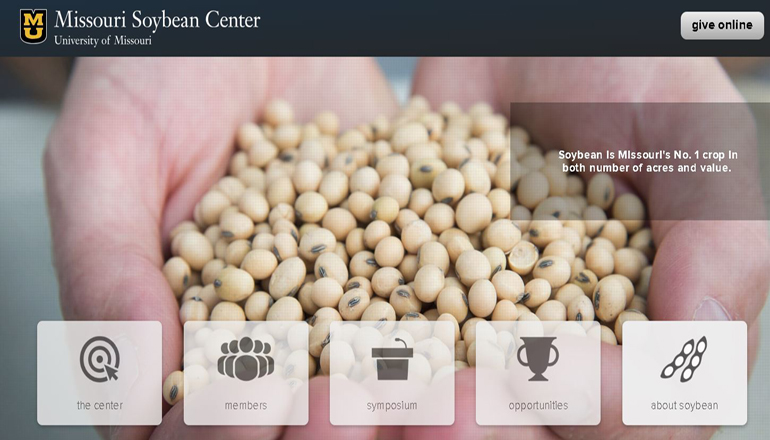Technology in the form of “big data” may guide farmers’ selection of soybean varieties best-suited for their fields.
Data may come from drones overhead or in-depth analysis of soil. Data may include climate impact. Big numbers are topics for talks April 10 at the U.S. Soybean Symposium on the University of Missouri campus, Columbia. Speakers include researchers and farmers, says Bill Wiebold, MU Extension soybean specialist.
Program and lunch are free, but those planning to attend must register online at the MU Soybean Center website. Opening reception and sign-in start at 8 a.m. Welcomes begin at 9 a.m.
Farmers Robert Alpers of Prairie Home and Kyle Durham, Norborne, start the program by presenting challenges for soybeans in Missouri.
First data speaker will be Shilpa Sood, lead scientist at the Climate Corp. from St. Louis. She’ll tell of leveraging big data locally. Trained in genetics and molecular biology, she now works on data in farming. These topics aid sustainable farming, she says.
The program allows time after each speaker for discussions. Those are moderated by MU scientists. “Come prepared to ask questions,” Wiebold says.
Livestock farming isn’t left out. Bob Schnabel, MU animal science and informatics expert, speaks after lunch. He tells how big data adds insights into animal breeding.
Katy Rainey, a soybean breeder at Purdue University, talks about new ways she uses to look at soybeans in her field plots. That includes devices flown on drones.
Keynote speaker Scott Sebastian, a retired researcher at DuPont Pioneer, will present 30 years of looking for high-yield genes. His searches used new technology.
“Soybean producers should hear of coming rapid changes in production,” Wiebold said. “Technology becomes more useful.”
The daylong program at the Bond Life Sciences Center allows MU scientists and students to show their posters at breaks. Speakers stay for visits at the last reception ending at 5:15 p.m.







